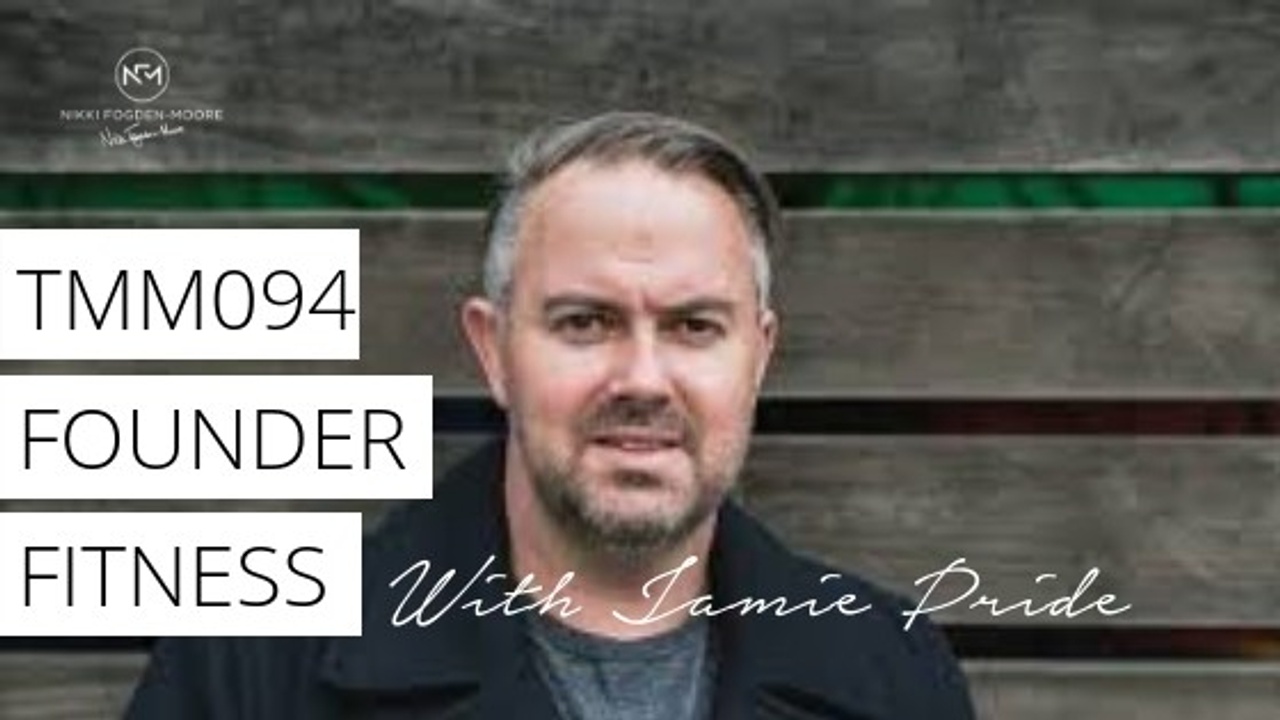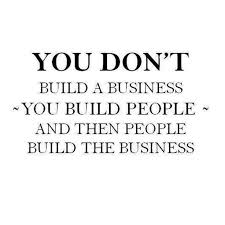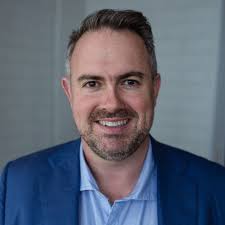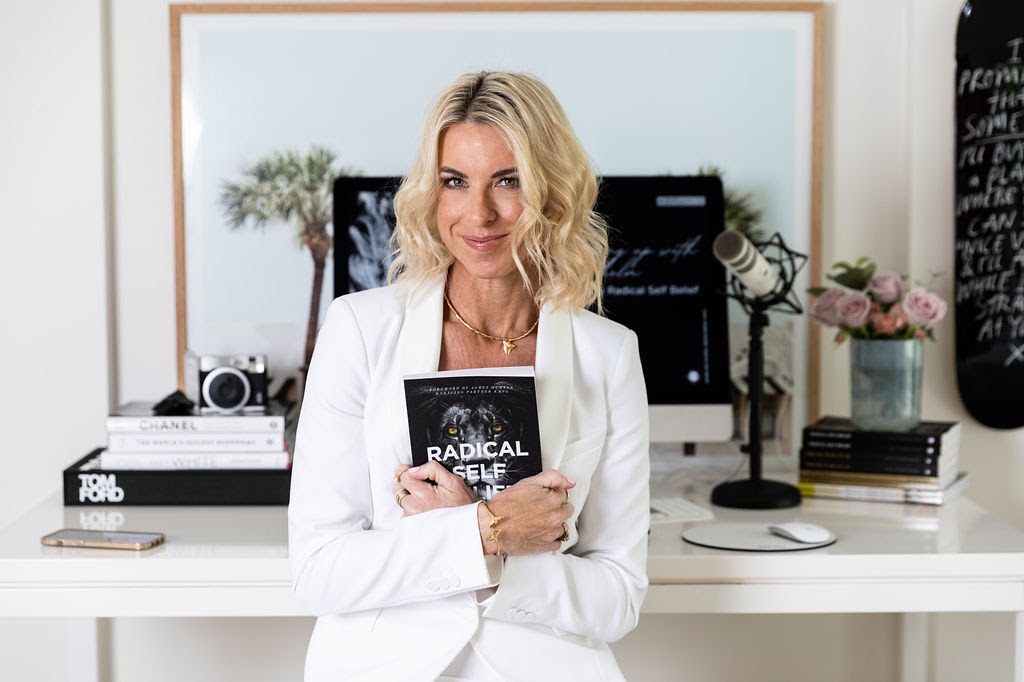TMM 094 Founder Fitness Jamie Pride
Sep 14, 2018
TMM 094 Founder Fitness Jamie Pride
Speaker, author of Unicorn Tears, serial entrepreneur & venture capitalist Jamie Pride talks the nitty gritty on why start ups fail and how to prevent it. Entrepreneurs need to failure-proof themselves by being Founder Fit.
Approximately three start-ups are founded every minute. Of those start-ups, 92 per cent will fail within three years. Just think about that for a second. That is a lot of failure. And while a lot of work is being done to improve the success of start-ups, the reality is that entrepreneurs need to brace themselves for more failure than success.
At the NSW Start Up Hub in Sydney Jamie and I discuss the importance of looking at the blend of personal and commercial traits for sustainable success. Here's a detailed blog from our chat you can listen to the podcast or watch the video. Hope you enjoy. As always reach out with comments and questions as awareness is not enough - we need to take the next step of action to get real support.
Why Do Founders Fail
Why do many founders fail, what to do to prevent burn out and why we need to look at both our personal as well as our commercial goals side by side for health, wealth and wisdom when building businesses and lives we love.
Over the past 20 years, Jamie has founded and funded numerous technology start-ups. During that time, he's seen a clear pattern emerging: start-up failure has become an accepted industry norm, and it has an impact that reaches far beyond financial loss to investors.
Having experienced my own journey of failure as a founder more than once, I have felt the very real, deep, personal impact of that failure on me, my family and my colleagues.
Founder Capacity vs Capability
You can always continue to improve your capability (skills). That’s going to evolve over time, but capacity for
on three dimensions, physical capacity, mental capacity and emotional capacity is the fuel tank. Your reservoir that you can draw upon that smoothes out that journey.
It’s something that you can essentially have to help buffer you from the stresses of the world.
When I had my own challenges, I had plenty of capability but no capacity. So when the challenges come and you don’t have that capacity, then you’re more at risk of a breakdown. You’re more at risk of potentially committing suicide. You’re more at risk of abusing drugs or alcohol because you just don’t have anything to dip into.
Building capacity as you grow is crucial and ultimately reflects in the 3 foundations/traits of great founders.
The 3 Foundations Of Great Founders
My view is you can actually learn and entrepreneurialism can be taught, but I think we’re teaching the wrong things. I think we need to be preparing people for those personal impacts that entrepreneurialism takes.
ONE: PURPOSE
The first one is that the core or the foundational element that I think a good founding is based on is motive. What is your why? Connecting with purpose is crucial. The reason why it’s crucial is that when the chips are down and you are facing adversity, you are more inclined to go the distance on projects that you’re highly connected to.
Purpose is far more sustainable than just passion. It’s far more closer to what your values are. Founders who are authentically connected with the problem they’re trying to solve ... they might be trying to solve literacy, or clean water, or they might be trying to solve a particular technology problem that somebody in their
family would benefit from, but founders that are purposely connected to the problems they’re solving, they’re scratching an itch, are far more resilient, firstly.
That’s the first thing.
TWO: INVESTING IN SELF - BUILDING CAPACITY
The second thing is I think founders who invest in themselves and build capacity when they don’t need it, and that’s on the three dimensions, the physical which is diet, exercise, sleep and their relationship with alcohol and drugs.
Mental capacity as well as physical capacity is vital. What are your productivity habits? How do you create space and time for creativity, planning, stress reduction and the day to day demands of running your business.
- What’s your relationship with your phone?
- Can you do deep work?
- What is your concentration look like?
- How do you deal with interruptions?
- How do you make sure that you’re constantly not in productivity crisis mode, you’re not flustered, missing
appointments?
Then lastly in self investment is your emotional capacity development. Looking at whether or not you want to meditate, or you want to do critical self-analysis, or if you want to look at things like journaling. I think it’s very valuable, but some kind of ability for you to reflect and create head space I think is really crucial. That’s the second thing, so building capacity.
THREE: AWARENESS
We get up, stimulus response, and sometimes you do things without thinking. That’s how we’re programmed as human beings. It’s a survival trait.
However, if you want to grow and develop, you need to firstly understand what do you do and just actually make a conscious effort to be more present and understand that when this happens, I respond this way and create the space to ask yourself why.
Awareness is crucial for sustainable success.
Get Educated But Don't Try To Be The Mega Founder
The ultimate goal is to understand what your strengths are and what your weaknesses are, because as a founder and entrepreneur, you can then start to not necessarily work on your weaknesses, but amplify your strengths and then potentially surround yourself with people who can level out your weaknesses.
It's also good to know what you are looking for in an expert in certain areas and not just trust blindly without any sort of understanding where that skill may lie and the value it will add. Do your due diligence.
Find a Founder Peer Circle
There’s not a lot of conversation and certainly not a lot of preparation for entrepreneurs on the physical and emotional impact, what it means to doubt yourself, what it means to fear disappointing other people.
The imposter syndrome, the idea that you have a fear of being rejected. There’s a whole bunch of psychological aspects to entrepreneurialism that aren’t widely discussed, and I think a lot of people think well,
you’re either born an entrepreneur or you’re not.
Founders are two and a half more likely to be hospitalised than the baseline population. They are three times more likely to have depression. They are six times more likely to have ADHD.
Jamie and his co-founder didn't see an outlet for founders to be able to deal with those issues and then have a safe space where they could be vulnerable. So they created a not for profit called The Founder Circle whose mission is really to have founders support founders. This essential element is for any leader in life. Surround yourself with a solid and supportive peer group.
The People Factor
The only thing that in my view is we’re going to differentiate ourselves from machines is machines can do shallow work easily, process emails, take calls, Google duplex, just being able to prove that they can simulate a human phone call and a human doesn’t know, right? Well there is always a human element required.
How do you write a book, or how do you create a great piece of art, or how do you create some good content from a business standpoint is an unwavering ability to be able to concentrate and focus.
Conversations at Home
The entrepreneurial landscape is a shared risk when you have a partner and family at home - things don't operate in isolation.
There’s a really great adage, is when you come home and someone says, “How was your day?” and you say, “Fine,” there’s no room for conversation. You’re shutting that door down, so there’s no dialog at home because you’ve been talking all day at work.
A level of mutual respect is critical. It’s hard to have good relationships if you’re in that survival mode, so again, if you’re in that mode - being conscious of ensuring your personal wellbeing is in tact is vital to ensure your relationships have a chance at working as well.
It’s really hard to take care of other people until you’re taking care of yourself. The oxygen mask analogy where on a plane, you put on your oxygen mask first.

Overall take a breath, build the three core traits of entrepreneurs, which is:
- you need to have a sense of self-awareness
- you need to be adaptable (purpose to be connected to)
- you need to have some resilience/capacity.
You can’t turn on those automatically. They’re something you need to invest in. You need to take the time to nurture these before you get into crisis mode. You can’t make that investment if you’re in survival mode. It’s impossible.
If you're leading at work or inside an organisation the remember you're not alone and to take action building your health and your mindset as well as your wealth.
Reach out and leave a comment, ask for help where you can and please let us know if there's anything we can do to help you on your journey in leadership and life.
Nikki
_____________________________
 More about our guest Jamie Pride
More about our guest Jamie Pride
Jamie Pride is a speaker, author, serial entrepreneur and venture capitalist on a mission to help build better founders and a better venture capital ecosystem. You can find out more about his work on www.jamiepride.com






